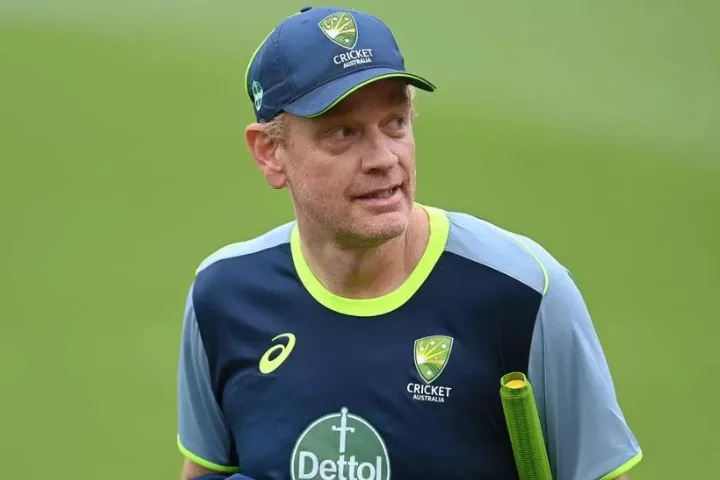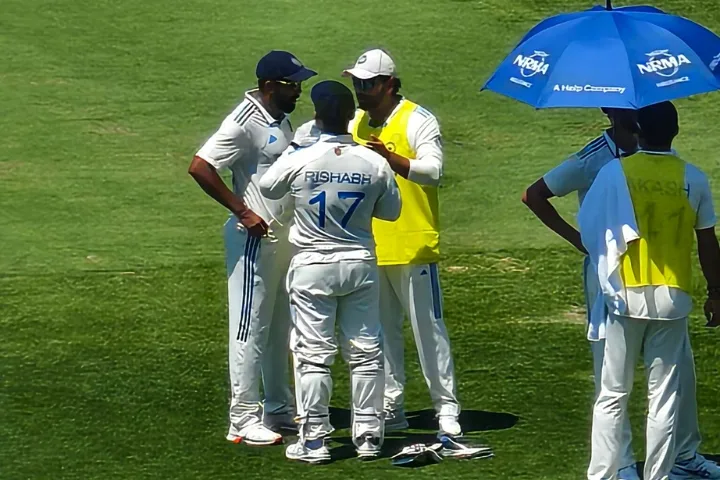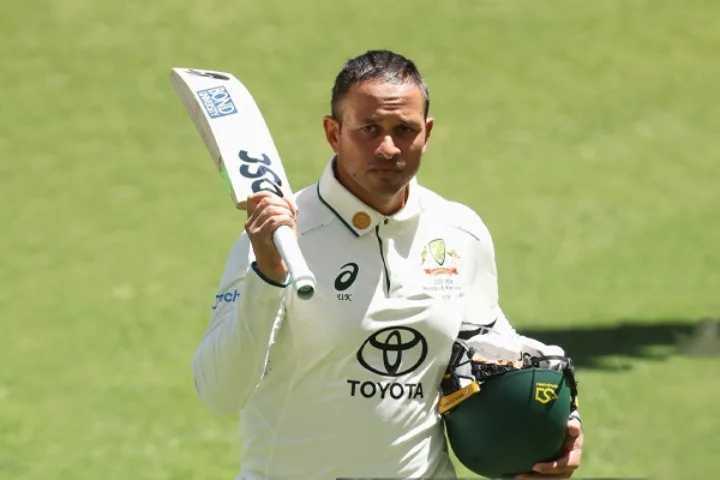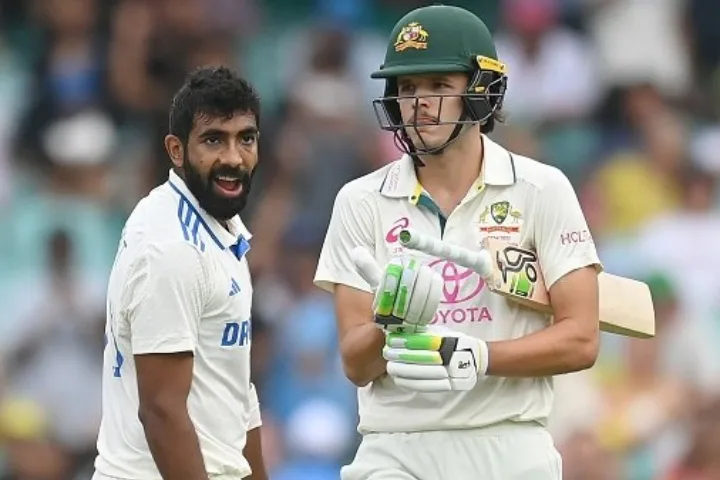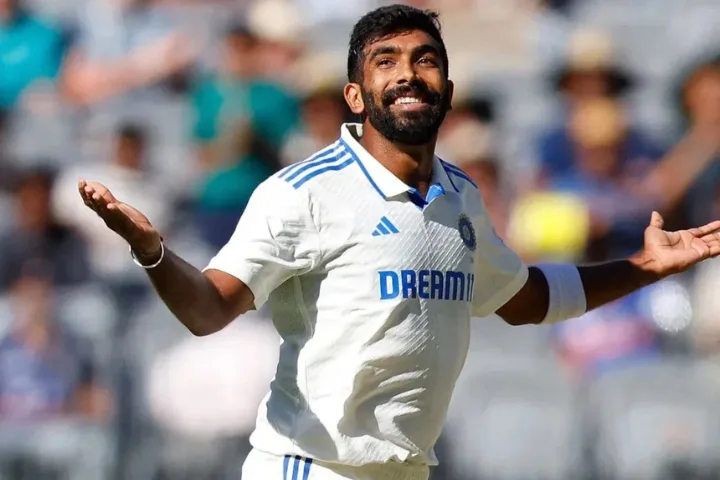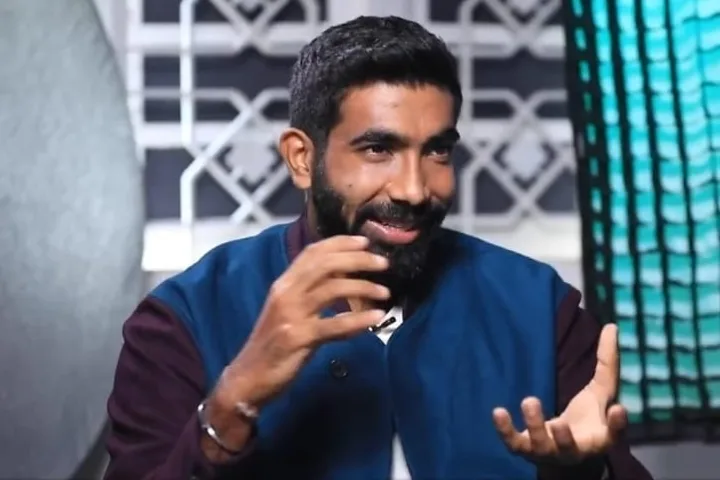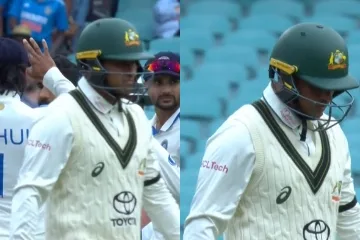Andrew McDonald’s comments on the Indian team’s bullying of young Australian batsman Sam Konstas have sparked controversy, with former spinner Brad Hogg criticizing the statement as an overreaction.
During the Sydney Test of the Border-Gavaskar Trophy, tensions flared when Sam Konstas got into a verbal altercation with Indian captain Jasprit Bumrah. The exchange intensified when Bumrah dismissed Usman Khawaja with a brilliant delivery and celebrated emphatically in front of Konstas.
McDonald claims he was bullied, Hogg disagrees
Australian coach Andrew McDonald claimed the Indian team’s behavior was intended to unsettle 19-year-old Konstas. According to McDonald, the celebratory antics were a calculated attempt to intimidate the young batsman.
However, former Australian spinner Brad Hogg was not convinced. On his YouTube channel, Hogg called McDonald’s comments exaggerated.
“For the coach to come out and say that the Indian players were bullying Konstas and that there is a mental health issue there, I think that is going too far,” Hogg said. “If you want to give it away, you must also take it back.”
Hogg further emphasized that players must learn to handle confrontations on the field and the reactions they provoke.
“The coach should not talk about Indian bullying. The coach should talk to his player about how he is going to handle retaliation from the opposing team instead of defending him,” Hogg added.
Gautam Gambhir gives his opinion
Indian coach Gautam Gambhir also shared his opinion on the incident, suggesting that cricket is a difficult game and requires mentally strong players.
“Only tough players can play this game. You can’t be too soft,” Gambhir said.
The incident has sparked debates about the psychological aspect of cricket, with many pointing out that mental resilience is crucial to success at the highest level.
Johnson’s analysis of India’s mind games
Former Australian pacer Mitchell Johnson also weighed in on the matter, discussing India’s psychological tactics during the Border-Gavaskar Trophy. Johnson observed that the Indian team seemed to employ a “two against 11” strategy to isolate the Australian batsmen.
“The Indian team seemed to adopt the mentality that it was ‘two against 11’ in the middle, with the aim of making the Australian batsmen feel isolated and under pressure,” Johnson wrote in his column for The Nightly. “The focus was not only on testing the technical skills of their opponents, but also on challenging their mental strength.”
Konstas’ altercation with Bumrah
The clash between Konstas and Bumrah became a focal point of the Sydney Test. As the day’s play came to an end, Konstas got into a heated exchange with Bumrah. Moments later, Bumrah dismissed Khawaja with an impressive delivery and celebrated animatedly, adding fuel to the fire.
Johnson believed that Konstas’s actions, although well-intentioned, were ill-timed.
“I appreciate what Konstas was trying to do by supporting his teammate, but it just wasn’t the right time for that kind of commitment,” Johnson said. “At this point in the day, there could only be one winner.”
Guidance for young players
Johnson stressed the importance of veteran players mentoring their younger teammates in handling confrontations on the field. He speculated whether Khawaja or other senior players spoke to Konstas after the day’s match to offer guidance.
“Introducing new players to the team comes with responsibilities. “They need the guidance of experienced teammates to understand how to handle various scenarios within the dynamics of the game,” Johnson added.
Stay up to date with all the cricket action, follow Cricadio in WhatsApp, Facebook, Twitter, Telegram and instagram

 Workout
Workout
 Meditation
Meditation




 Contact Us
Contact Us
